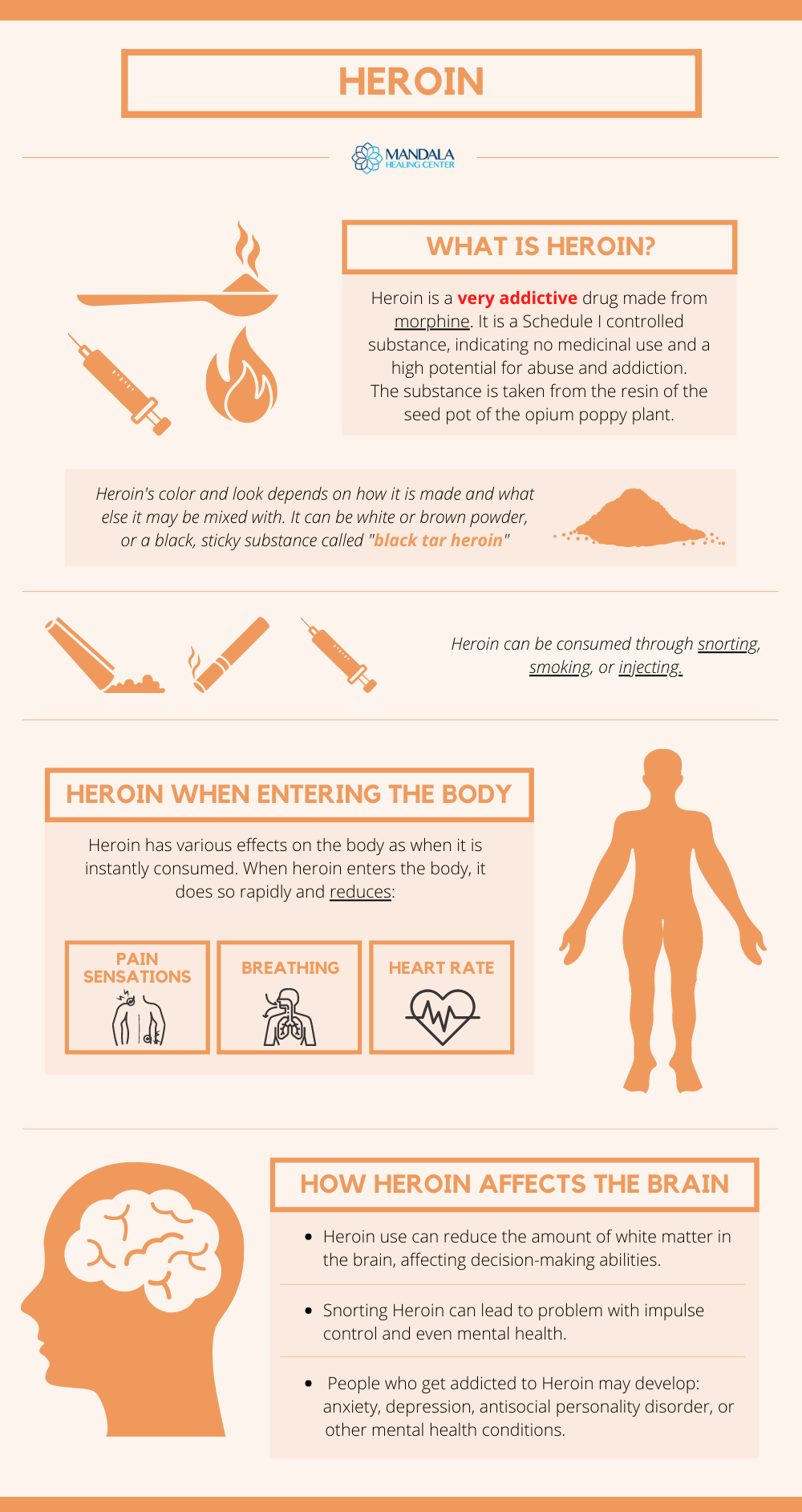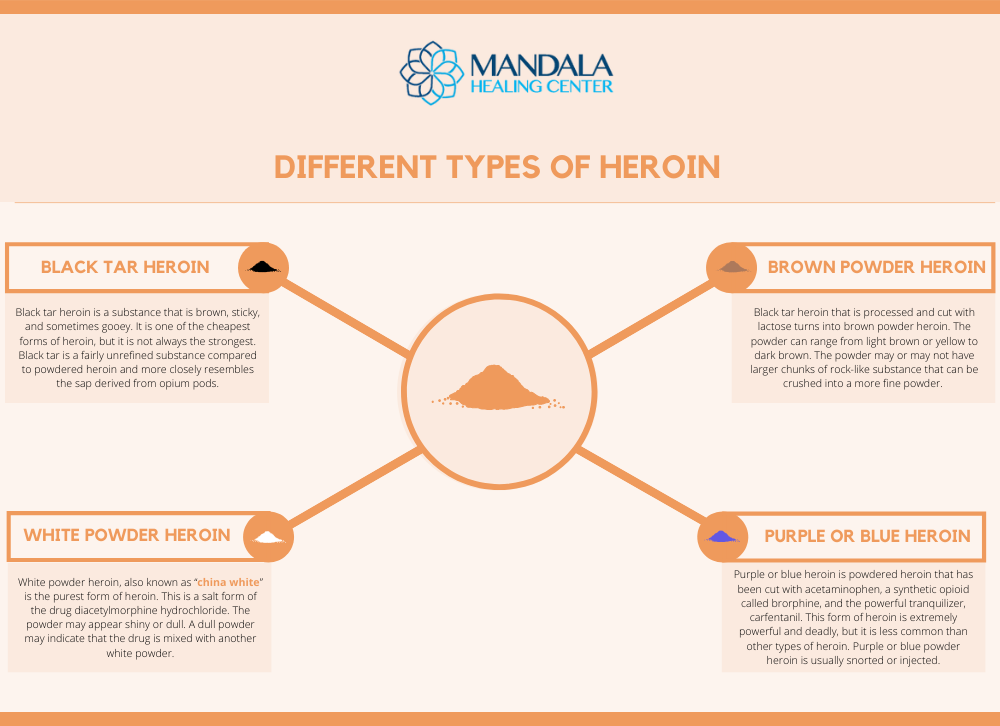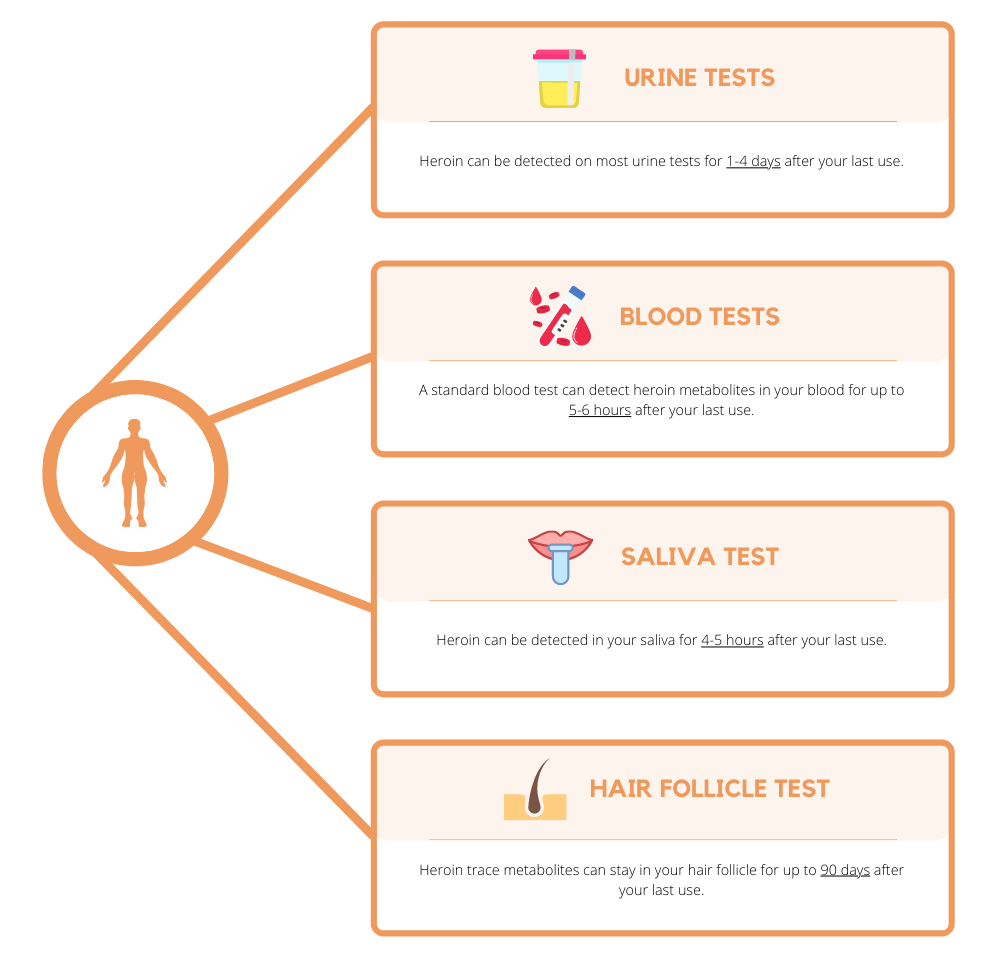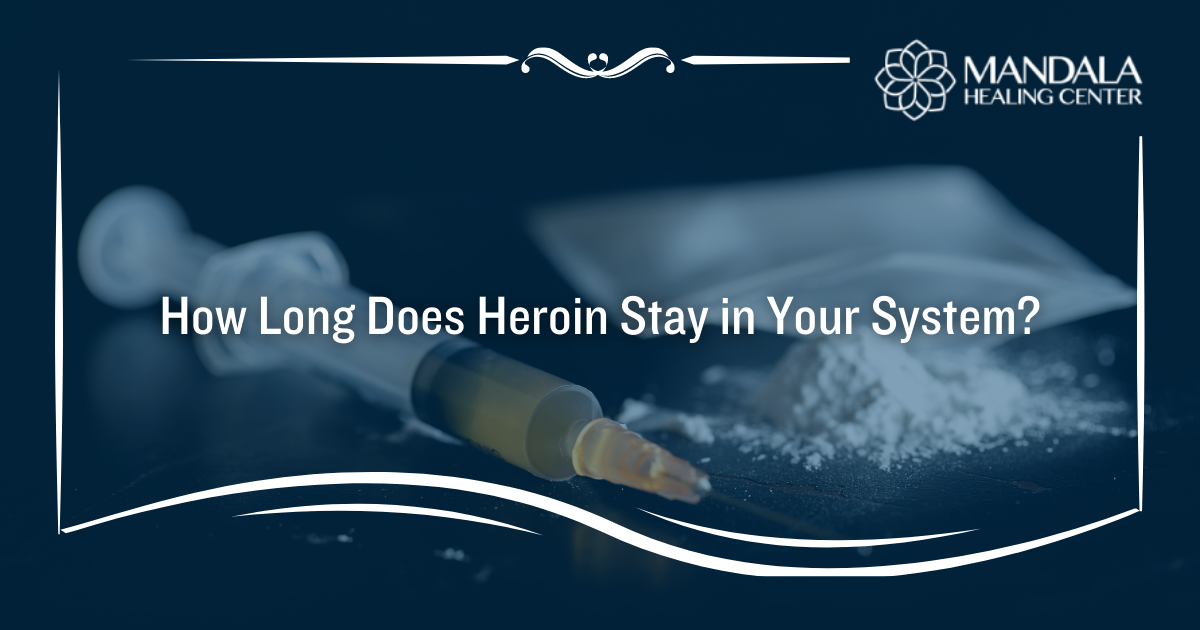Heroin is a Schedule I controlled substance and a highly addictive opioid.[1] Its effects are similar to those of other opioids like morphine and OxyContin, but far more powerful. Using heroin, regardless of how or when you use it, puts you at a high risk of overdose as well as having dangerous interactions with other drugs or medications. Understanding how long heroin stays in your system can help you recognize and assess the risks associated with your heroin use.


What Does Heroin Do to the Body?
Heroin is derived from morphine, a naturally-occurring opioid that comes from the seed pod of the opium poppy plant.[2] When you use heroin, it is actually converted into morphine and a similar chemical, 6-acetyl morphine, in your body.[3]
Heroin’s effects take place rapidly. If you smoke or inject the drug, you can expect to feel the effects within seconds. If you snort the drug, it may take a couple of minutes. The effects of heroin tend to peak in just a couple of minutes and they wear off after about 1-3 hours. However, just because the effects of the drug have worn off doesn’t mean the drug has been eliminated from your system completely.
Knowing the elimination half-life of a substance can help you determine approximately how long it will stay in your system. The elimination half-life refers to how long it takes 50% of a substance to leave your system. It takes between 4-5 half-lives for a substance to be eliminated from your body.
Compared to other opioids, heroin has a very short half-life of approximately 2-6 minutes. Morphine, on the other hand, has a half-life of one to seven hours, and 6-acetyl morphine has a half-life of 6-25 minutes. This means heroin can stay in your system for between 5-30 hours.[4]
Even though the drug is eliminated from your system in a day or two, its metabolites can remain detectable in your body for several days or weeks.
How Long Does Heroin Stay in Your Urine, Blood, Saliva, and Hair?

The easiest way to know if there is any heroin in your system is to take a drug test. Drug tests may also be given for other purposes, such as for employment or for use in the criminal justice system. How long heroin is detected on various drug tests depends on factors like how long you have been using heroin as well as what type of drug test is used.
Urine Test
The most frequently used type of drug test is called a urinalysis, or urine test. They are easy to administer, minimally invasive, cost-effective, and highly accurate. Heroin can be detected on most urine tests for 1-4 days after your last use.
Blood Test
Blood tests are rarely used because they are considered invasive. They also have a fairly short detection window. A standard blood test can detect heroin metabolites in your blood for up to 5-6 hours after your last use.
Saliva Test
Like blood tests, saliva tests don’t detect heroin for very long. They must be administered quickly after your last use to be effective. Heroin can be detected in your saliva for 4-5 hours after your last use.
Hair Follicle Test
Hair follicle tests have been gaining popularity recently because they have a very large detection window. Heroin trace metabolites can stay in your hair follicle for up to 90 days after your last use.
False Positive Heroin Tests
Testing false positives for heroin is rare, but it can happen. Consuming large quantities of certain foods such as muffins or bagels with poppy seeds can cause a false-positive result for opioids. This is because poppy seeds contain trace amounts of morphine.[5] Certain medications may also trigger a false-positive result. False positives can be confirmed by sending the sample off to the lab for confirmation testing.
Individual Factors That Affect How Long Heroin Stays in Your System
Despite the fact that heroin is a fast-acting drug with a rapid half-life, it can stay in some people’s systems longer than others. How fast you metabolize heroin and how quickly it leaves your system is dependent on several individual factors, such as:[4]
- Age, height, and weight
- Genetics
- Body fat percentage
- Amount of heroin taken
- The potency of the last dose
- Frequency of heroin use
- Duration of heroin abuse
- Rate of metabolism
- Liver and kidney function
- Diet
- Hydration
- Method of administration (i.e. snorting, injecting, or smoking)
Get Help for Heroin Abuse and Addiction Today
Heroin is a highly addictive and dangerous drug. You can get addicted in as little as 1-2 uses, so it is nothing to play around with. However, if you fear you or a loved one have developed a heroin problem, you’ve come to the right place.
Here at Mandala Healing Center, we help individuals overcome addictions to heroin using a holistic, individualized approach. Our heroin rehab program consists of several evidence-based therapies that can help you understand your addiction, learn how to overcome your personal obstacles, and develop an actionable plan to prevent relapse.
Don’t wait any longer to get the help you deserve. Call now to speak with one of our dedicated admissions coordinators in West Palm Beach.
References:












